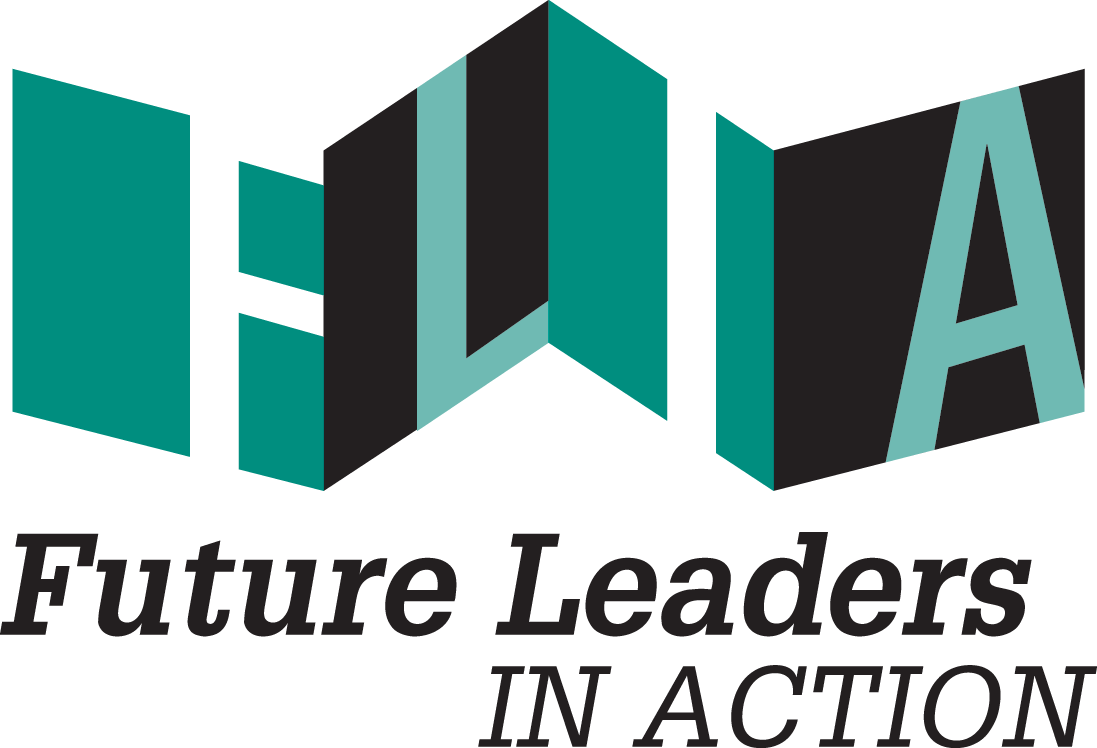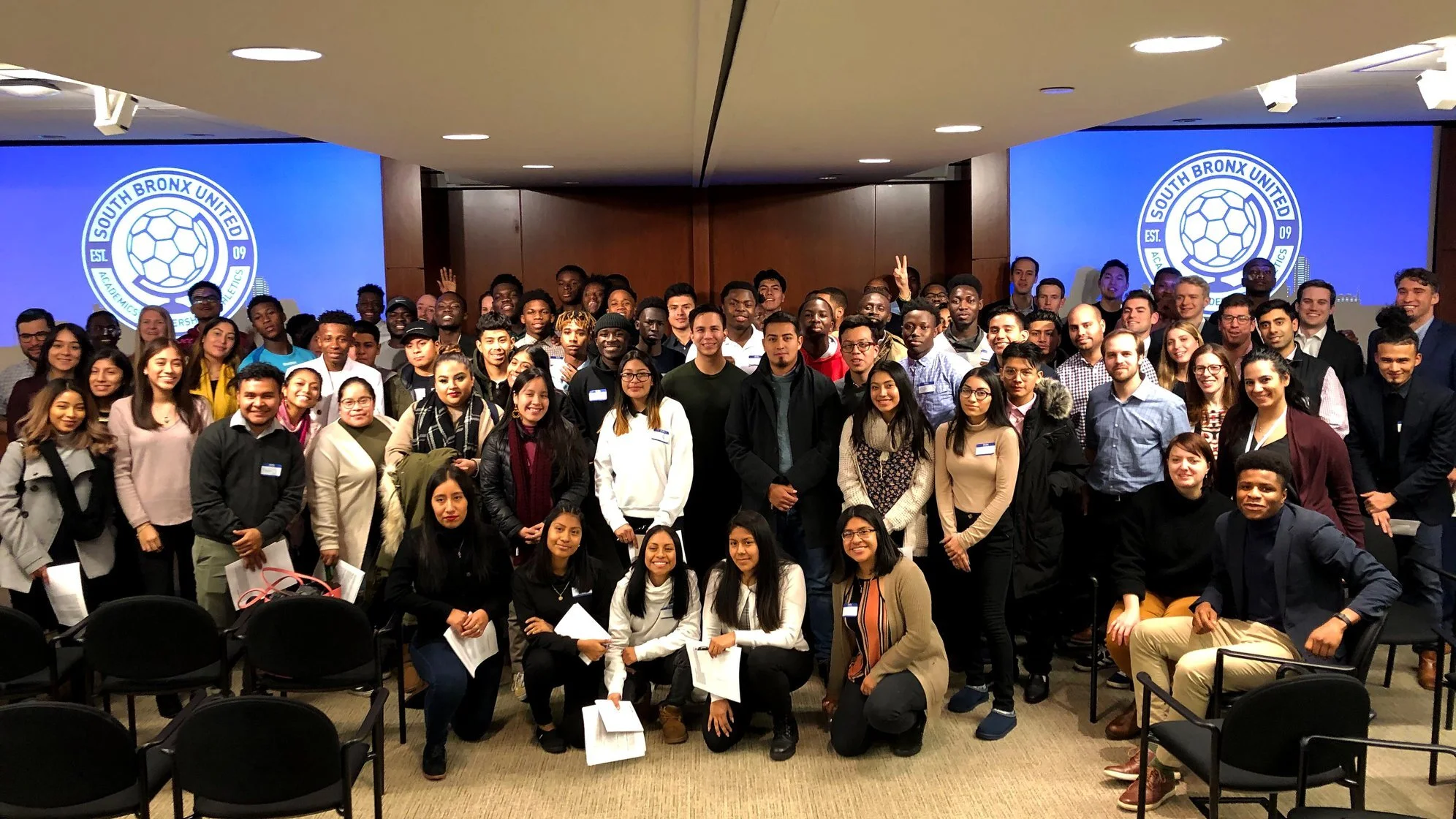There are many qualities of future leaders and change-makers that don’t fit within the confines of a traditional job description or resume and cover letter submission, so we're sharing some insight on what we look for in fellows during the hiring process.
The Perks of Being a Fellow
I was sweating in a coffee shop in Brooklyn as I frantically proofread my application for a fellowship with Future Leaders in Action. It was a sweltering summer day in June and my friend had just sent me a link to the fellowship application. I scanned the description and felt as though I had conjured up a dream listing… social sector... youth-oriented... professional development... living wage? It felt too good to be true. And it almost was -- the application was due that same day. I quickly put together my materials and hit send.
When I look back on that day in June, my main concern was my ability to gain a significant professional experience in the social sector. I had graduated a month prior and the only thing I really knew I wanted for my future was to work in the non-profit industry and that I was passionate about solving a variety of different social issues. But despite my steady social sector oriented work-study job and a handful of unpaid volunteer and internship experiences, I hadn’t had a major professional experience at a non-profit. This made the job application process especially daunting. Unlike the private and financial sectors, there aren’t a plethora of entry-level jobs available in the social sector at a given time. I was hopeful that a fellowship with Future Leaders in Action would allow me to discover more about my own capabilities while contributing to an organization whose mission I was passionate about. All of that came true and more -- beyond improving my professional skills in project management and workplace communication, I received significant preparation for the job process, resulting in two job offers before my fellowship even ended.
My experience with Future Leaders in Action has expanded way beyond the 12-week fellowship. As an alumni of FLIA, I’ve been able to grow further and broaden my skills in the social sector as well as continue to meaningfully contribute to Future Leaders in Action. I joined FLIA’s board of directors as its first alumni board member, just a year after I had attended the leadership retreat for my Fall 2018 fellowship. As a board member, I participate in quarterly board meetings regarding the organization’s growth, getting important insight into what goes into running a young, but wide-reaching non-profit organization. I am learning about things I don’t necessarily think about on a day-to-day basis including managing an organization’s budget and analyzing and understanding key performance indicators. I also have been able to further my leadership skills through my organization and facilitation of a cohort of alumni fellows to develop FLIA’s core values.
Even before my board service I’ve been able to remain engaged with my cohort, current fellows, and other alumni. The monthly alumni newsletter gives alumni a window into the goings-on and growth of FLIA, while highlighting the accomplishments of featured alumni, and opportunities in the fellowship cities. Alumni gatherings have also provided the opportunity to build and strengthen friendships and networks across cohorts.
Though I could not have predicted that just over a year later after sitting in that Brooklyn coffee shop I’d be FLIA’s first alumni board member, I am deeply grateful to the organization’s support of my professional development throughout my fellowship and after. I am appreciative of the alumni meet-ups and the fellowship presentations I’ve gotten to observe, as well as the insightful conversations I’ve held with fellow alumni over the past year, discussing our experiences at our first jobs, social issues, and future career plans. I am looking forward to our expansion of alumni opportunities and brainstorming more ways Future Leaders in Action’s alumni network can connect and remain involved.
Clare Connaughton is a Fall 2018 Future Leader in Action fellow and current alumni board member for FLIA. After completing her fellowship, Clare earned a position as a bilingual paralegal with Children’s Rights, a national organization that holds the government accountable for keeping kids safe and healthy through legal action and strategic advocacy. Learn more about Clare’s fellowship here.
Fellowship applications for Summer 2020 are open for opportunities in New York and Central Iowa. Click here to apply. Know someone who should apply for the opportunity? Thank you for forwarding this article to them!
The Trees of Tomorrow
Riding the Wave: Learning How to Balance Challenges and Exploration
Staring out my office window on the Wednesday before Thanksgiving, I was reflecting on the FLIA fellowship. I only had a couple of weeks left and I was recalling my trepidation and excitement when I arrived on my first day. Three key phrases came to mind when I thought about the past months: time management, rejection, and exploration.
As a fellow with YSS, I knew I was going to be working in a new environment and learning skills. I had very limited proficiency with technology and frequently relied on my bioinformatics friend in college to fix my various computer issues. Now, I was supposed to design a website to provide information about human trafficking to the public as well as encourage Teens Against Human Trafficking teams to form. Due to changed circumstances, I did not have firm guidance and imposed expectations. Throughout my entire life as a student, I had clear deadlines, expected daily tasks, and a roadmap for advancement. Without that continued guidance in my fellowship, I felt like I was floundering, but not enough to ask for help.
The heading of the section of YSS’s website that Roslyn worked on this fall.
After about a week of researching more and more obscure information with a less direct connection to human trafficking and my task at hand, I knew that I had to take initiative on the next steps and not wait for approval. Gaining access to Wordpress and learning how to use it was like stepping through a portal into a new, and sometimes frustrating, world. Working on a shared computer network in an organization was also new, and learning how to operate depending on what I had access to posed a unique challenge. With relatively limited guidance, I had to set personal goals for my projects and manage my time in such a way that I would not burn through all of my tasks at once.
Perhaps the activity I am most proud of and the most educational was organizing a FLIA fundraising event. I enjoy large community events and from my days as a treasurer in a college organization, I knew that events can bring community spirit and make good fundraisers. This event required me to make a lot of asks in Ames and after around the 5th rejection for silent auction donations, I lost my fear of asking. While each rejection forced me to reconsider my plan, it made the generosity of donating store owners all the more impactful. This fundraiser allowed me to plan out my weeks and taught me how to balance my time, expectations and asking for help. When the event finally arrived, turnout was less than impressive. I was hurt for about a day, but with the support of some of my coworkers and my partners, I was able to reframe the event as a learning opportunity. The next time I host a fundraising event I will work harder on turnout and the willingness of people in my community to put their trust in me was inspiring.
This fellowship was an eye-opening opportunity in many ways. I learned how to train my body to work in an office setting, constructive time management techniques, how to handle rejection, and that exploration leads to a deeper understanding of myself and my capabilities. My website will be a jumping off point for people who are seeking to understand human trafficking in Iowa communities and I hope that as we understand more about human trafficking and the connection to almost every part of our lives we can eradicate it.
The Privilege of Volunteering: Navigating the Mess That is Free Labor
Nonprofit Terms You Need to Know
In order to be a nonprofit, one must be a tax-exempt organization that is defined in different sections of tax-code. At the core of these different tax-exempt codes, the organizations cannot pay out profits to any private shareholder or individual. Nonprofits can pay individuals reasonable compensation to those providing services, such as employees. A common misperception is that nonprofits cannot have a positive revenue. In fact, nonprofits should try to have a reserve fund to help ensure sustainability.






